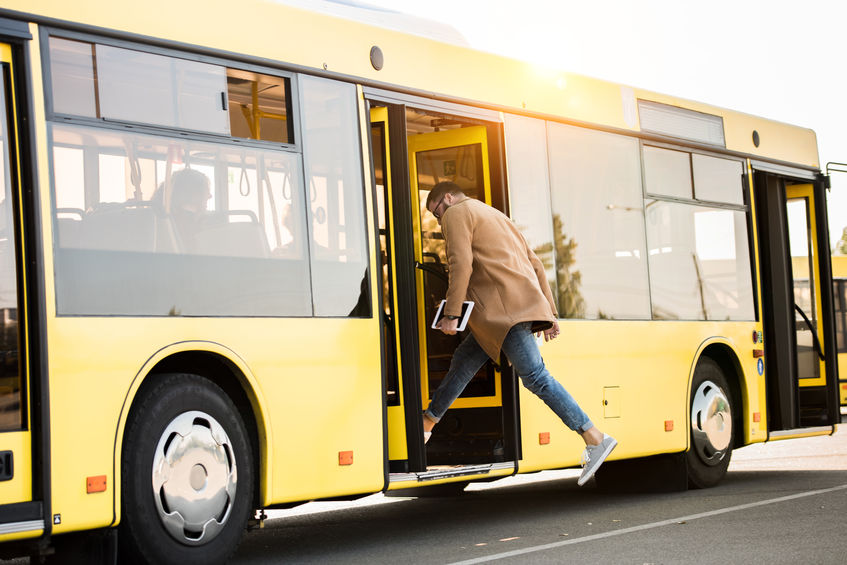Unless you’ve been blissfully living off the grid in isolation over the last several months, you’re likely very aware of and informed about coronavirus (COVID-19). The outbreak—which has officially been declared a global pandemic by the World Health Organization as of early March 2020—has upended everyday life as we know it for the foreseeable future. Many of us are experiencing a lot of anxiety and uncertainty during this time, unsure of what is or is not safe or morally responsible, especially when it comes to public travel.

As a leading provider in the bus and transportation industry, we at Northwest Bus Sales want to ensure our customers remain safe and informed as they navigate public transportation throughout this crisis.
That’s why we’ve gathered the most recent and imperative information you need to know about using public transportation in the wake of coronavirus.
Is public transportation considered an essential business?
In an effort to “flatten the curve” and slow the spread of COVID-19, many states have ordered their residents not to leave home but for essential tasks and essential employees who must still report to work. Businesses deemed “nonessential” must close or have their staff work from home, if possible. These orders leave a lot of people wondering if public transit systems are even still running—and the answer is yes.
Public transportation is considered an essential business, as many people rely on it to get to essential places, such as the grocery store, doctors offices, and for critical workers, their jobs. Mass transit systems and their supporting infrastructures are still operating and will continue to do so throughout this time. This includes monorails, metro/subways, transit buses, terminals, and the employees needed to operate and maintain them.
What are public transportation systems doing to keep commuters safe?
Different states and cities have different pandemic response plans in place, but the American Public Transportation Association (APTA) has released guidelines on how the industry should respond. Most cities are implementing practices such as more frequent deep cleanings for vehicles and other infrastructure, and isolation and disinfecting of units known to be taken by a known (or suspected) infected rider.
The APTA is also urging its members to advise staff and passengers on the best and latest practices for remaining healthy and hygienic while continuing to use public transportation.
How can I protect myself from coronavirus while using public transportation?
If you have to leave your house for an essential task you should, first and foremost, consider other methods of transportation before mass transit. It will be easier to follow social distancing guidelines if you can walk or bike, for example, than if you’re sharing a subway car with a group of other commuters.
If public transportation is your only option, continue to practice social distancing as best you can and take precautionary sanitation measures.
Keep six feet away from other passengers, if possible, or try to choose a unit with fewer people. Health experts recommend this six-foot distance because COVID-19 is spread via close contact with a carrier, specifically by exposure to infected respiratory droplets from a cough or sneeze. As these infected droplets can rest on surfaces for a period as well, you should avoid touching your face and wash your hands thoroughly (at least 20 seconds) as soon as possible after riding the bus, metro, etc.
As another precautionary measure, try to avoid travel during peak commute times. See if you can adjust your work hours for a less busy commute, and plan necessary appointments or trips to the store for these off-times as well.
The most important step you can take to protect yourself and others during this pandemic is to stay home as much as possible. Especially if you’re feeling sick, showing symptoms, or have come into contact with a known carrier—stay home!
For more information and the latest updates on COVID-19 please visit the CDC’s website. Staying educated with reliable resources is the best way to remain safe and healthy, and to help others do so as well.
At Northwest Bus Sales, we are confident that if we all work together, we will weather this storm and come out on the other side stronger than ever. Stay safe, stay home, and—when this is over—remember that we will continue to be here for your new and used bus needs!
